Journalists are eligible for free email subscriptions to SEJournal, including TipSheet, WatchDog (on access issues) and more.
Breakfast and Opening Plenaries
Concurrent Sessions
Network Lunch and Breakouts
SEJ Membership Meeting
Dinner, Satellites and the Dust Bowl
| Agenda | Coverage | Lodging/Transportation | Exhibits/Receptions | Environmental News | About Lubbock |
As a journalism organization that believes in an open society, SEJ each year welcomes a diverse group of attendees to our annual conference. Attendees include representatives of business, government and environmental groups, as well as working journalists, academics and students.
Because non-journalists are here, you may see or hear presentations or responses to presentations that you might not expect from mainstream journalists. The presentations and any responses do not necessarily reflect the views of SEJ or any of its members.
As our guest, you should respect our interest in open discussions of environmental issues by thanking all participants in sessions you attend and not disrupting presentations of views you disagree with.
Finally, please respect our rule that SEJ members are given preference during question-and-answer sessions.
All sessions, as well as registration, exhibits and breaks, will be at the Overton Hotel
and Conference Center, 2322 Mac Davis Lane, Lubbock, unless otherwise indicated.
Friday, October 19, 2012
Registration
6:30 a.m. - 5:00 p.m.
If you haven't already signed up for the Friday dinner and premiere of Ken Burn's Dust Bowl documentary, Saturday party or Sunday brunch, check with registration personnel — there might still be room.
Location: South End Prefunction Space, Main Floor (near the stairs as you approach the Sunset Ballroom from the hotel)
SEJ Information Table
6:30 a.m. - 5:00 p.m.
Sign up here for Saturday mini-tours, read up on candidates for the board election, find membership applications, copies of SEJournal and other SEJ information.
Location: Sunset Ballroom Foyer, near the main outside entrance of the Conference Center
The Barnes and Noble at Texas Tech Bookstore
1:00 - 5:00 p.m.
The TTU bookstore will be open for business this afternoon, selling books by speakers and SEJ members. Stop by and browse!
Location: Sunset Ballroom Foyer
Vehicle Technology Demo
6:30 a.m. - 5:00 p.m.
Sign up here to test-drive new technology in the auto industry, and talk with experts from GM, Nissan and Volkswagen.
Location: Sunset Ballroom Foyer, near the main outside entrance of the Conference Center
Exhibits
7:00 a.m. - 5:00 p.m.
Browse through this year's exhibits, offering up information on issues and solutions, fellowships, source lists and maybe even some fun give-aways. Don't forget to check the second floor, too!
Location: Sunset Ballroom and ballroom foyer on the main floor, and outside the Horizon Ballroom on the 2nd floor
Breakfast Plenary — Is Communicating Climate Change a Lost Cause?
7:00 - 8:45 a.m. Full hot breakfast buffet opens at 7:00 a.m. in the Sunset Ballroom. Plenary begins shortly thereafter.
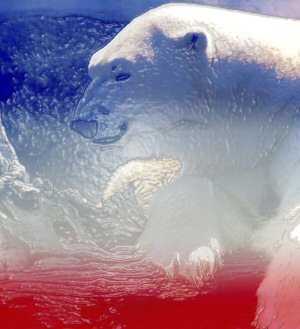 |
The science community has spoken loud and clear for years that anthropogenic climate change is real, it’s here now and it’s going to get much worse. Across the globe people are already grappling with its impacts, and in the U.S. municipalities and insurance companies are bracing for sea-level rise, extreme rainfall and flooding, and droughts and wildfire. Meantime, political and public concern has nearly disappeared. What happened? How can this disconnect be explained? And, how can journalists and scientists collaborate to raise the level of discussion without jeopardizing their objectivity? Coverage.
Moderator: Dave Poulson, Associate Director, Knight Center for Environmental Journalism, Michigan State University
Speakers:
Bill Blakemore, Correspondent, ABC News
Max Boykoff, Assistant Professor, CIRES Center for Science & Technology Policy, University of Colorado-Boulder, and Senior Visiting Research Associate, Environmental Change Institute, University of Oxford
Katharine Hayhoe, Director, Climate Science Center, and Associate Professor, Department of Political Science, Texas Tech University
Peter Sinclair, Producer of the Video Series and Blog "Climate Denial Crock of the Week" and "This is Not Cool", a new series on climate for the Yale Forum on Climate Change & the Media
Location: Sunset Ballroom, 1st Floor
Opening Plenary — Land, Water and People: It’s the Food, Stupid!
9:00 - 10:30 a.m.
 |
Humans are adaptable, and historical records show that we’ve survived some serious weather changes in the past. But, there are seven billion of us now, and we’ve blanketed the planet, scoured the earth, pillaged the oceans, and loaded the atmosphere with greenhouse gases. Still, human ingenuity is at work across the globe patching things together, changing agricultural practices and lifestyles. We’ll explore how food production is a vital test of our ability to adapt our ways to the new realities. Coverage.
Moderator: Christy George, Independent TV Producer
Speakers:
Dick Auld, Rockwell Endowed Chair in Plant and Soil Science, Department of Plant and Soil Science, Texas Tech University
Chris Funk, Research Geographer, Earth Resources Observation Systems, Famine Early Warning System Network, US Geological Survey and Founding Member, Climate Hazard Group, University of California Santa Barbara
Andrew Sharpless, Chief Executive Officer, Oceana
Helene York, Director, Purchasing Strategy, Bon Appetit Management Company, and President, Bon Appetit Management Company Foundation
Location: Sunset Ballroom, 1st Floor
Beverage Break
10:30 - 11:00 a.m.
Location: Sunset Ballroom, 1st Floor
Concurrent Sessions 1
11:00 a.m. - 12:15 p.m.
All concurrent sessions are located on the 2nd floor.
THE CRAFT
Freelance Pitch Slam
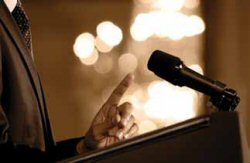 |
The query quandary reduced to 60 seconds! Freelancers read compelling, exquisitely crafted one-minute pitches to a panel of editors representing radio, print and online magazines. Editors then critique the queries, explaining why — or why not — the story would work for their publication. They also offer tips for improving the pitch and information about which sections of their publication are open to freelancers. Freelancers of all genres will acquire excellent connections. Some may even get assignments. Coverage.
Moderator: Jane Braxton Little, Freelance Journalist
Speakers:
Marla Cone, Editor in Chief, Environmental Health News
Janet Raloff, Editor, Science News for Kids, and Senior Editor, Science News
Kate Sheppard, Reporter, Mother Jones
Peter Thomson, Environment Editor, The World–PRI/BBC
Jeff Turrentine, Articles Editor, OnEarth
Location: Horizon Ballroom A, 2nd Floor
THE NATION
Fracking May Divide Your Town Next. But What's the State of the Science?
 |
Is it an economic savior abetting a reduction in CO2 emissions, or an industrial technology run wild, leaving a swath of pollution in its wake? The battle lines are familiar, and won't be re-drawn here. But throughout the debate about fracking there has been a dearth of science to inform it. Now that fresh research is finally emerging, it is often embroiled in controversy itself. In this session we'll look at what the research says and who's doing it. What are the challenges of communicating science in a charged political environment? And how are the oil and gas industry, or environmentalists, seeking to influence its outcome? Coverage.
Moderator: Abrahm Lustgarten, Energy Reporter, ProPublica
Speakers:
Lawrence Cathles, Professor of Geology, Department of Earth and Atmospheric Sciences, Cornell University
Terry Engelder, Professor of Structural Geology, Department of Geosciences, Pennsylvania State University
Anthony Ingraffea, Dwight C. Baum Professor of Engineering, Department of Civil and Environmental Engineering, Cornell University
Robert Jackson, Nicholas Professor of Global Environmental Change, Associate Dean for Research and Professor of Biology, Nicholas School of the Environment, Duke University
Location: Horizon Ballroom B, 2nd Floor
THE WATER
Squeezing Blood from a Desert: Western Water Management
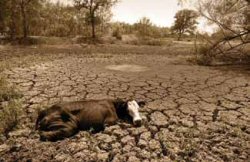 |
Mega-drought, population growth, aging infrastructure, managed depletion all spell disaster for our nation's water resources. Water management in the Western United States must deal with these issues as well as the politics of agribusiness, domestic energy development, and municipal long-term sustainability issues. Our panel of experts from science and industry will discuss how all of these issues influence the future of our most precious resource...water. Coverage.
Moderator: Lana Straub, Freelance Journalist
Speakers:
Kristen Averyt, Associate Director for Science (Acting), Cooperative Institute for Research in Environmental Sciences, University of Colorado Boulder
Jim Conkwright, General Manager, High Plains Underground Water Conservation District #1, Lubbock, Texas
Sharlene Leurig, Senior Manager, Water and Insurance Programs, Ceres
Judy Reeves, Senior Hydrogeologist, Cirrus Associates
Location: Horizon Ballroom C, 2nd Floor
THE GLOBE
Women, Water and Health: From Dirty Wells to Endocrine Disruptors
 |
Researchers in developed countries are discovering links between women's reproductive health problems and exposure to chemicals, such as endocrine disruptors, through drinking water and other sources. In the world's poorest places, drought and poor sanitation force women to walk farther to gather clean water, keeping girls out of school and making women more vulnerable to water-borne diseases. In emerging economies, women working and living near industrial sites face dangers posed by unregulated environmental toxins in their water supply. Experts and reporters will look for common threads connecting women, water, and reproductive health across these three economies. Coverage.
Moderator: Elizabeth Grossman, Freelance Journalist
Speakers:
Ameto Akpe, Senior Reporter, BusinessDay Media (Nigeria)
Irasema Coronado, Professor, Department of Political Science, University of Texas at El Paso
Jennifer Sass, Senior Scientist, Health and Environment Program, Natural Resources Defense Council, and Professorial Lecturer, Department of Environmental and Occupational Health, George Washington University
Location: Canyon Room, 2nd Floor
THE COMPUTER
Web Resources in Toxicology and Environmental Health
 |
The objective of this computer lab session is to highlight online databases and other Web resources relevant to toxicology, chemical safety, and environmental health. Discussion of US resources, such as those offered by the National Library of Medicine's Toxicology and Environmental Health Information Program, the US EPA, and ATSDR and non-governmental sources, will be complemented with a look at global tools such as OECD's InChem Portal and the World Library of Toxicology. Students will be able to evaluate these online resources and explore different search strategies by researching topics of interest to them professionally.
Presenter: Philip Wexler, Technical Information Specialist, Toxicology and Environmental Health Information Program, National Library of Medicine
Location: RHIM Classroom, 2nd Floor (next to the fitness center). Note: While all session activities will be projected on the big screen at the front of the classroom, attendees are encouraged to bring a laptop to follow along, bookmark sites and get "hands-on" training. For those without computers, the computer classroom has a limited number of desktop computers available on a first-come, first-served basis, so get there early!
THE LAND
Native America Goes to Court to Protect Land and Resources
 |
Notwithstanding disappointing court decisions, enforcement failures, and obstacles in state and national legislatures, it has been critical for Native Americans to resort to the American legal system to protect their cultural, land, environmental and natural resource rights. This legal involvement has encompassed issues as diverse as tenure security, tribal recognition, treaty enforcement, economic development, and secure water and natural resource access and stewardship. This legal realm is now being enlarged to include climate change's effects on subsistence, relocation, and basic human rights, and also genetic resources and biotechnology rights and remuneration. International negotiations and the Inter-American human rights system are also establishing principles and precedents for these and other indigenous peoples' legal issues. Our experts will offer reflections on these and other developments for Native American rights and highlight some of the under-reported events and trends regarding Native American legal efforts. Coverage.
Moderator: Richard Blaustein, Freelance Environmental Journalist
Speakers:
Erin Dougherty, Staff Attorney, Native American Rights Fund
Elizabeth Kronk, Associate Professor of Law and Director of the Tribal Law and Government Center, The University of Kansas
Vickie Sutton, Professor of Law, School of Law; Director, Center for Biodefense, Law and Public Policy; Director, Law and Science Certificate Program and The JD/MS Program in the Life Sciences, Institute of Environmental and Human Health, Texas Tech University
Location: Moody Boardroom, 2nd Floor
THE ECONOMY
Will Economic Growth Destroy the Planet — or Save It?
 |
"There's a fundamental conflict between economic growth and environmental protection," declares Brian Czech of the Center for the Advancement of the Steady State Economy. But to billions of poor people who yearn for a better life, economic growth is a solution, not a problem. Business leaders will argue that economic growth, by creating jobs and wealth, will enable us to afford the environmental protection that we need. Coverage.
Moderator: David Ferris, Freelance Journalist
Speakers:
Brooke Buchanan, Director of Communications, Sustainability, Walmart
William Caesar, President, Waste Management Recycle America
Brian Czech, President, Center for the Advancement of the Steady State Economy
Bernard Weinstein, Associate Director, Maguire Energy Institute, and Adjunct Professor of Business Economics, Cox School of Business, Southern Methodist University
Location: CH Foundation Boardroom, 2nd Floor
Network Lunch
12:15 – 2:00 p.m.
Enjoy stimulating discussions on a host of hot topics listed below. Just grab your lunch in the Sunset Ballroom and check the locations below to find the session or numbered discussion table that corresponds to your choice. A Network Lunch flyer is also available at the Registration Desk.
Concurrent with the small-group discussions, there are three breakout sessions, which are first-come, first-served. Pick up your lunch in the ballroom and head upstairs to the rooms.
|
|
|
Tar mats of weathered BP oil buried along the beach of Elmer's Island in Louisiana after the 2010 BP Deepwater Horizon oil spill were uncovered by Hurricane Isaac in August 2012. Photo: Coastal Protection and Restoration Authority of Louisiana. |
1. BP Deepwater Horizon Oil Spill at Two: The Legal, Environmental and Social Legacy of the Nation’s Largest Oil Spill
Tommy Beaudreau, Director, Bureau of Ocean Energy Management, U.S. Department of the Interior, has recently canceled. Replacing him is this panel discussion:
Elgie Holstein, senior director for strategic planning with Environmental Defense Fund, and David Muth, Louisiana State Director for the National Wildlife Federation's Coastal Louisiana Campaign, will discuss the legal, environmental and social effects of the nation's largest oil spill. The explosion and sinking of the Deepwater Horizon oil rig at BP's Macondo well killed 11 and injured 17, and resulted in the uncontrolled release of oil and natural gas from the wellhead a mile below the surface of the Gulf of Mexico for three months. A portion of the 4.9 million barrels of crude oil washed up on coastal beaches and into wetlands, with the worst contamination in Louisiana. The spill disrupted tourism from Florida to Texas for a year, shut down commercial and recreational fishing and the oil and gas exploration industry in the Gulf for close to a year, and prompted the restructuring of the federal agency that awards leases and regulates exploration and production of oil and gas in federal waters. Weathered oil resurfaces along the Gulf Coast after every hurricane, and an oil sheen believed to be from the underwater wreckage continues to show up on the surface at the well site. Coverage.
Moderator: Mark Schleifstein, Staff Writer, The Times-Picayune
Location: Horizon Ballroom A, 2nd Floor
2. Poisons in the News: Toxicology and the Media
When pollutants appear to threaten harm, environmental journalists may find themselves wading through terms and concepts that are unfamiliar. Which few toxicants can fairly be termed toxins? What can toxicology determine — and what’s beyond it? What if your editor assigns you to find out if some chemical or pollutant du jour is “safe”? Is there any single definition of what that might mean? And how do you confirm that your expert sources aren’t under- or overstating the data about risks? Renowned toxicologists and reporters who have long covered the field will share tips for working with the often vague — and incomplete — data on potential poisons. Coverage.
Moderator: Janet Raloff, Senior Editor, Science News
Speakers:
Dan Fagin, Director, Science, Health and Environmental Reporting Program, New York University
Elizabeth Grossman, Freelance Writer and Author, Chasing Molecules: Poisonous Products, Human Health and the Promise of Green Chemistry
George Gray, Professor, Department of Environmental and Occupational Health, and Director, Center for Risk Science and Public Health, George Washington University
Ronald Kendall, Founding Director, The Institute of Environmental and Human Health, and Founding Chair and Professor, Department of Environmental Toxicology, Texas Tech University; and past President, Society of Environmental Toxicology and Chemistry
Location: Canyon Room, 2nd Floor
3. Sound Reporting: Using Audio to Enhance Your Environmental Storytelling
Thinking of adding radio or podcasting to your resume? Want to include audio reporting in your multimedia journalism? Even if you've never reported for radio, it's not hard to get started. We'll cover tools, tips and tricks of audio storytelling for environmental journalists.
Presenters: Karen Schaefer, Freelance Journalist and Independent Radio Producer; Loretta Williams, Independent Public Radio Journalist
- Links for Radio Journalism, Performance, and Editing
- NPR Submission Guidelines
- Radio Handouts
- Voicing Your Script
- Have follow-up questions or want advice? Contact: karenscha@gmail.com or loretta@lorettawilliams.com
Location: Moody Boardroom, 2nd Floor
Looking for a more casual conversation? Pick out a topic that interests you and join a table (numbered below) in the Sunset Ballroom for an informal lunch.
- Climate Change, Landscape Stressors and the New South Central Climate Science Center. Douglas Fischer, DailyClimate.org; Kim Winton, Director, South Central Climate Science Center; Katharine Hayhoe, Director, Texas Tech Climate Science Center and Associate Professor, Department of Political Science, Texas Tech University; John Zak, Professor and Associate Dean for Research, College of Arts and Sciences, Texas Tech University
- Dust, Freshwater and Climate Change: The Future of the Southwest. Tony Davis, Environmental Reporter, Arizona Daily Star; Jayne Belnap, Research Scientist, U. S. Geological Survey
- Renewable Energy and Wildlife Impacts. Dawn Stover, Freelance Science and Environment Writer; Laurie Allen, Wildlife and Fisheries Biologist, U.S. Geological Survey
- Cooperative Reporting and Crowdsourcing: Getting that Big Environmental Story with Help from Colleagues and Collaborators. Jan Barry, Professor of Environmental Journalism, Ramapo College, and former Reporter, The Record (Bergen, NJ); Karen Coates, Freelance Journalist/Media Trainer; Lindsey Hoshaw, Freelance Journalist
- Citizen Monitoring of Environmental Conditions: What Does it Mean for Journalists? Emily Gertz, Freelance Journalist and Editor
- Lead's Legacy: What You May Not Know About Battery Recycling. Valerie Wigglesworth, Staff Writer, The Dallas Morning News; Jeffrey Stoub, Communications and Publications Manager, Commission for Environmental Cooperation
- The Insidious Water Thieves of Texas: Invasive Species Impacts on Resources, Economics and Ecosystems. Amy Kraft, Freelance Journalist; Tom Arsuffi, Director, Llano River Field Station, Texas Tech University at Junction; Robert Cox, Assistant Professor, Habitat Restoration Ecology, Texas Tech University
- Bats and Humans in a Changing World – Is There a Future? Fabian Carvallo Vargas, Independent Journalist, Radio Producer and Trainer; Tigga Kingston, Associate Professor, Department of Biological Sciences, Texas Tech University
- Facts Gone Wild: Applying Journalistic Rules and Ethics to Outdoor Writing. Nadia White, Assistant Professor, The University of Montana School of Journalism. Coverage.
- Running To Death: Policy, Politics and Economics of the U.S. Horse Racing Industry. Jennifer Rabinowitz, Freelance Journalist
- The Environmental Movement Loses Momentum: Where Have All the Major Legal Changes Gone? Richard Blaustein, Freelance Journalist; Vickie Sutton, Paul Whitfield Horn Professor of Law and Director, Center for Biodefense, Law and Public Policy, Texas Tech University
- SEJ 2013: Meet the People, Places and Issues Awaiting Us in Chattanooga. Anne Paine, former Environment Reporter, The Tennessean; Pam Sohn, Reporter, Chattanooga Times Free Press; Jim Bruggers, Environment Reporter, The (Louisville) Courier-Journal & 2013 SEJ Conference Planning Team
Location: Sunset Ballroom
Concurrent Sessions 2
2:00 - 3:15 p.m.
All concurrent sessions are located on the 2nd floor.
THE CRAFT
Using Imagery To Tell Environmental Stories
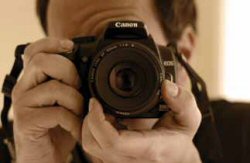 |
Visuals have always been a cornerstone of environmental journalism, but the methods and opportunities for telling environmental stories visually have expanded rapidly in recent years. Today's visual toolbox is much larger and more accessible, allowing many journalists who have worked primarily in visuals to expand into new realms, and others who once worked only with words or audio to add value to their work with photographs, videos, illustrations and graphics. This panel of veteran visual journalists who are stretching into new skill sets will start out going over the basics of visual storytelling for journalists with little or no experience creating visuals for their stories. We'll cover how to recognize which mediums might be the best choice to illustrate different types of stories, when to make those visuals yourself, when to team up with a specialist, and the different needs of illustrators, photographers, videographers and graphic artists. Finally, we'll look at some of the new opportunities presented by apps, mobile and web-based storytelling tools such as interactive graphics, animations, GIS and mapping technologies. Coverage.
Moderator: Michael Kodas, Author and Photojournalist
Speakers:
Emily Coren, Science Illustrator and Writer
Jerry Redfern, Photojournalist
Location: Horizon Ballroom A, 2nd Floor
THE NATION
Money as Sustainable Fuel: Driving Politics and Environmental Policy
 |
"Long green" from industries in Texas and many other states is used to lobby and donate to politicians from West to East to Gulf Coast. Some of that money is targeted to green, or environmental issues....anything from fracking, to regulating big ag, to wind turbine regulations. Who's spending the most on our elected representatives, and are the donors and lobbyists getting many decisions for their mega-dollars? This panel looks at election-year trends that could affect green issues in your hometown. Coverage.
Moderator: Chuck Quirmbach , Environment Reporter/Producer, Wisconsin Public Radio
Speakers:
James Browning, Regional Director, State Operations, Common Cause
Frank Maisano, Founding Partner, Policy Resolution Group, Bracewell & Giuliani
Timothy Nokken, Assistant Professor, Department of Political Science, Texas Tech University
Location: CH Foundation Boardroom, 2nd Floor
THE WATER
A Price on Water: Privatization of the Top Liquid Asset
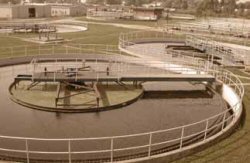 |
Water is our most essential natural resource. As such, there's profit to be had. All over the country, large corporations and private equity firms are taking over public water and sewer services from cash-strapped municipalities. These takeovers often result in worse service and higher costs. On another level, though, privatized water is nothing new. In Texas and elsewhere, groundwater is treated as a private property right. But as drought conditions worsen, how much public regulation of private groundwater should there be? Not much, said the Texas Supreme Court in a landmark ruling handed down earlier this year. This panel will explore the implications of the ruling, and of the increased privatization of public water resources in general. Coverage.
Moderator: Matthew Frank, Associate Editor and Senior Staff Writer, Missoula Independent
Speakers:
Mike McGregor, Project Coordinator, High Plains Underground Water Conservation District #1, Lubbock, Texas
Ken Rainwater, Director, Water Resources Center, and Professor, Department of Civil and Environmental Engineering, College of Engineering, Texas Tech University
David Sandino, Associate Professor of Law and Acting Director, Center for Water Law and Policy, School of Law, Texas Tech University, and former Chief Counsel, California Department of Water Resources
Location: Horizon Ballroom C, 2nd Floor
THE GLOBE
Going to Extremes: Human Health on a Warmer Planet
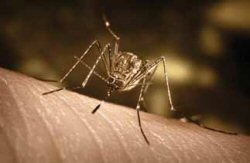 |
We are entering an age of new, emerging diseases and older, reappearing ones. With global warming under way, heat waves, wildfires and tropical disease outbreaks will be producing unprecedented challenges for public health. Experts are finding that diseases once considered rare in the United States, such as dengue fever and West Nile virus, are no longer uncommon. West Nile Virus, first detected in the United States in 1999, has now been reported in 48 states (in people, birds, or mosquitoes), according to the Centers for Disease Control, while the mosquitoes that carry dengue fever are also a growing threat in southern states as the insects increase their range. Are temperature changes already redrawing the distribution of bacteria, insects and plants, and how is that affecting human health? The effects of climate change will make some people sick and place new burdens on many local health departments, according to new reports. How are governments responding? Conversely, might public awareness about the health impacts of climate change help encourage support for pro-active mitigation and adaptation strategies? Coverage.
Moderator: Francesca Lyman, Journalist, Editor and Author
Speakers:
Katharine Hayhoe, Director, Climate Science Center, and Associate Professor, Department of Political Science, Texas Tech University
Kim Knowlton, Senior Scientist, Public Health Program, Natural Resources Defense Council
Jonathan Sleeman, Director, National Wildlife Health Center, U.S. Geological Survey
Location: Canyon Room, 2nd Floor
THE COMPUTER
"FOIA" the Bastards!
 |
Whether you're an old hand at public-records requests or just FOIA-curious, stop by as we brainstorm ways to use public documents to penetrate government bureaucracies. We'll start by suggesting records requests that are sure to produce stories in most any community, using state public-records laws or the federal Freedom of Information Act. We'll also discuss strategies to minimize costs and maximize the speed at which your requests are handled. Bring your laptop to this clinic-style panel; if there is time and interest we may even crank out a few public-records requests on the spot.
Moderator: Robert McClure, Executive Director, InvestigateWest
Speakers:
Pete Brewton, Hutcheson Professor of Professional Practice, College of Media and Communication, Texas Tech University; Attorney; Author; and former Reporter, Houston Chronicle and Houston Post
Joseph A. Davis, Freelance Journalist and WatchDog Project Director/TipSheet Editor, Society of Environmental Journalists
Location: RHIM Classroom, 2nd Floor (next to the fitness center). Note: While all session activities will be projected on the big screen at the front of the classroom, attendees are encouraged to bring a laptop to follow along, bookmark sites and get "hands-on" training. For those without computers, the computer classroom has a limited number of desktop computers available on a first-come, first-served basis, so get there early!
THE LAND
Coppering Bets Against Climate Change: Facing Uncertainty in Agricultural and Forest Systems
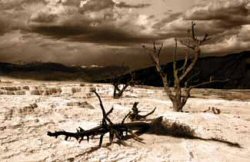 |
The American West is battling drought, erosion, pest-driven deforestation, and extreme temperatures that threaten crops. On the heels of a record-beating drought and massive wildfires this summer, farmers and ranchers are hoping for forecasts that will minimize their losses. But the science indicates that the impacts of climate change will vary tremendously by region. Panelists will discuss these threats to agricultural, rangeland, and forest systems and describe efforts to plan for an uncertain future. Coverage.
Moderator: Sunshine Menezes, Executive Director, Metcalf Institute for Marine & Environmental Reporting, University of Rhode Island
Speakers:
Chris Clayton, Agriculture Policy Editor, DTN/The Progressive Farmer, and incoming President, North American Agricultural Journalists
Brandon Loomis, Public Lands Reporter, The Salt Lake Tribune
Wayne Polley, Research Ecologist, Grassland, Soil & Water Research Laboratory, Agricultural Research Service, U.S. Department of Agriculture
Location: Moody Boardroom, 2nd Floor
THE ECONOMY
Great Plains Perspectives on Transboundary Tar
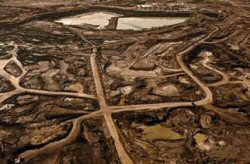 |
Canadian corporate and government efforts to overturn U.S. permit denial for tar-sands crude-oil pipelines to cross the border into the Great Plains and run from Alberta to the Gulf of Mexico have raised international concern, becoming one of the most contentious political issues of the Obama Administration's fourth year. Indigenous, environmental, corporate, organized labor, agricultural and cultural lobbies are colliding in a milestone chapter of energy policy history set in the global climate change and post-peak-oil era. This panel provides journalists the opportunity to capture the voices of spokespeople from the heartland who are directly affected by the development, namely rural Native Americans, farmers, and ranchers. Coverage.
Moderator: Talli Nauman, Health & Environment Editor, Native Sun News (Rapid City, SD)
Speakers:
Jane Kleeb, Executive Director, BOLD Nebraska
Anthony Swift, Attorney, International Program, Natural Resources Defense Council
Clayton Thomas-Muller, Tar Sands Campaign Director, Indigenous Environmental Network
American Petroleum Institute speaker TBA
Location: Horizon Ballroom B, 2nd Floor
Beverage Break
3:15 - 3:30 p.m.
Location: Sunset Ballroom, 1st Floor
SEJ Annual Membership Meeting
3:30 - 5:00 p.m.
Members of the Society of Environmental Journalists are urged to attend SEJ's Annual Membership Meeting. It's not just a good idea...it's the bylaws! Hear from a motivated slate of candidates ready to serve on SEJ's 2013 Board of Directors and cast your vote. Share information, concerns, questions and creative ideas central to the future of this lively educational community. You'll see a short member-produced video, hear some reports and have a chance to raise questions of your own.
Location: Sunset Ballroom, 1st Floor
Dinner, Satellites and the Dust Bowl at the Museum of Texas Tech University
Shuttles buses will depart from the Overton's north parking lot. (Exit through doors at far end of first floor hallway near Sunset Ballroom and SEJ Info Table.) Shuttles will run at 15-minute intervals from 5:30 to 7:30 p.m. and begin bringing people back from the Museum at 9:00 p.m.
Attendees will begin arriving at the museum at 6:00 p.m. Grab a drink at the bar, food on the buffet line or follow museum staff on behind-the-scenes tours of dinosaur bones, folk art, historic artifacts and tissue samples from their Genetic Resources Collection, including samples chronicling the decades-long aftermath of Chernobyl.
At 7:00 p.m. guests will adjoin to the theater, where NASA will present the latest in eye-catching satellite imagery, immediately followed by the world-premiere of Ken Burns and Dayton Duncan's "The Dust Bowl."
NASA's Newest Eye-opening Satellite Imagery
7:00 p.m.
NASA will be joining us again, this year sharing the stage with The Dust Bowl movie, focusing on climate around the globe, including desertification, with eye-opening satellite imagery.
Moderator: Angela Posada-Swafford, Science Writer, U.S. Senior Science Correspondent, MUY INTERESANTE Magazine
Speaker: Compton Tucker, Senior Scientist, NASA Goddard Space Flight Center
Location: Helen DeVitt Jones Sculpture Court and Auditorium, Museum of Texas Tech University, 3301 4th Street, Lubbock
Dinner and a Movie at the Natural History Museum
Begins shortly after the NASA session. Buses will begin departing for the Overton immediately after the film, but feel free to linger for a night cap and post-documentary discussion.
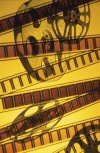 |
You won’t want to miss a special one-hour preview of "The Dust Bowl," by Ken Burns. Screenwriter and co-producer Dayton Duncan will be on hand to discuss the film, which will air on PBS this November. The film chronicles the worst man-made ecological disaster in American history, when a frenzied wheat boom on the Southern High Plains, followed by a decade-long drought during the 1930s, nearly swept away the breadbasket of the nation. "The Dust Bowl" is a morality tale about our relationship to the land that sustains us — a lesson that we ignore at our peril. We’ll have dinner with the program and the run of the museum, as well as backroom tours, throughout the evening. Pre-registration and $25 fee required.
Moderator: Chris Clayton, Agriculture Policy Editor, DTN/The Progressive Farmer, and incoming President, North American Agricultural Journalists
Speaker: Dayton Duncan, Writer, Documentary Filmmaker, and Co-producer, "The Dust Bowl"
Location: Helen DeVitt Jones Sculpture Court and Auditorium, Museum of Texas Tech University, 3301 4th Street, Lubbock
Wednesday, October 17
Thursday, October 18
Saturday, October 20
Sunday, October 21







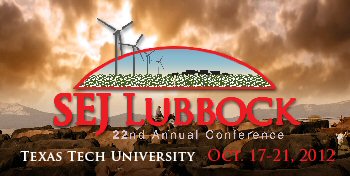
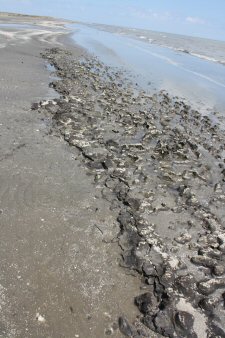



 Advertisement
Advertisement 


